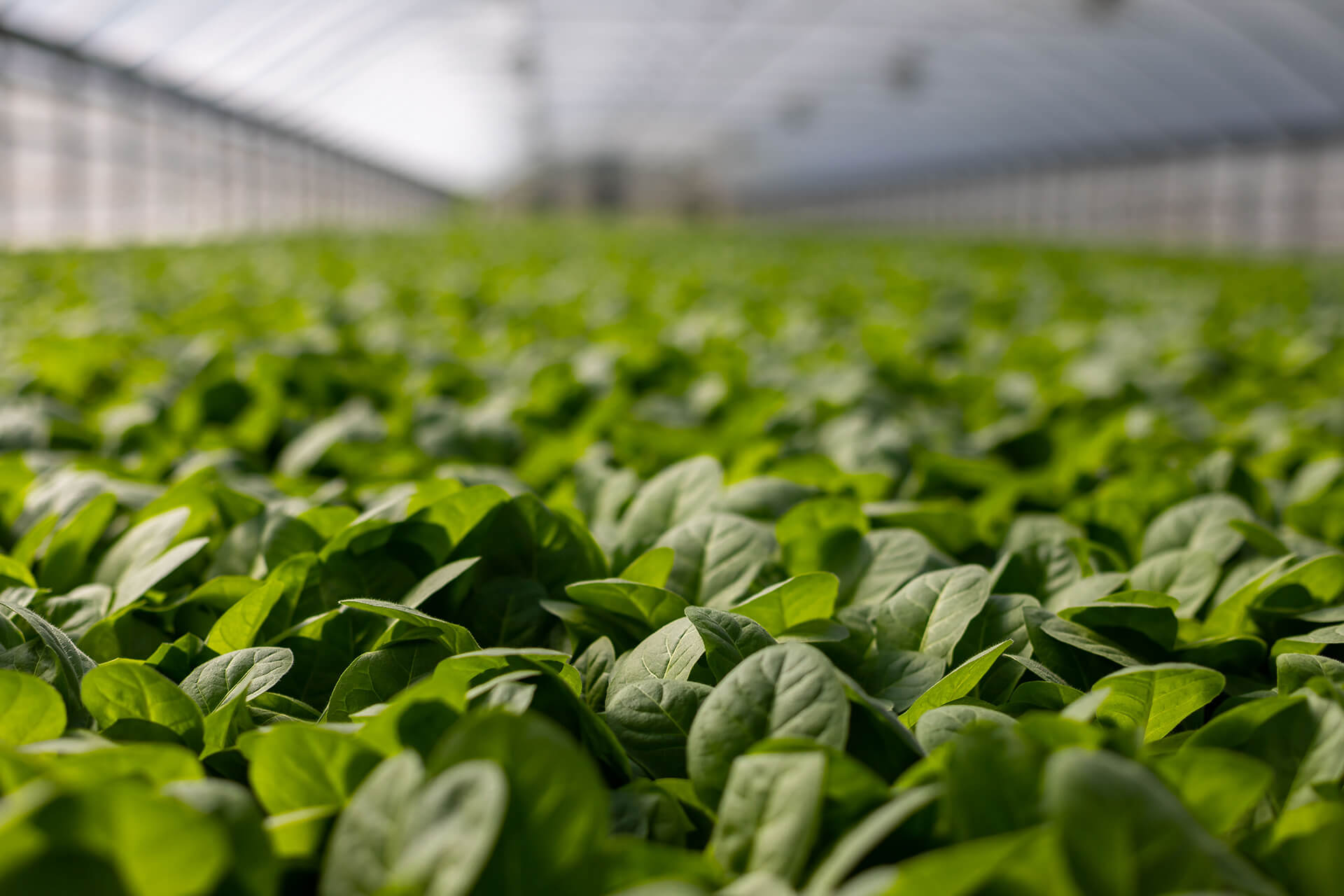The recent VIB acquisition of the CropDesign site in Flanders is the closing of a circle. Originally founded by the research institute back in 1998, CropDesign was bought by BASF in 2006. The company’s locale was subsequently turned into a reputed center for plant phenotyping – the assessment of plant traits such as growth, yield, quality, tolerance and resistance. With BASF recently choosing to continue these activities in other facilities, VIB was offered an excellent opportunity to gain back the CropDesign site.
“We realized this unique site would be an ideal testing ground for the projects of starting entrepreneurs in the agbiotech sector, something that was missing in our local ecosystem,” says VIB Managing Director Jérôme Van Biervliet. “We furthermore want to complement the infrastructure with the necessary guidance, to give new start-up companies every chance to flourish.”
High-tech infrastructure for accelerated research
The site in Nevele is special in several different ways. Firstly, there is the sheer size of the greenhouse: a whopping 3,500 m². “By setting up projects on a very large scale, we will be able to obtain particularly solid data about the growth and development of plants in specific conditions,” says Stijn Dhondt, manager of the incubator. The high-tech infrastructure in the greenhouse will allow the researchers to make subtle adjustments to variables like the temperature, light, humidity, soil composition and water dosage.
Secondly, the greenhouse contains a large-scale automated phenotyping facility for up to 60,000 plants. Its high-resolution camera systems can capture even the smallest features of the plants’ development and physiology – such as height, shape, leaf growth and color. This makes it possible to evaluate new crop varieties or protection methods much faster than in field trials.
The incubator will be a place where likeminded entrepreneurs inspire each other and can easily get into contact with interesting partners. – Jérôme Van Biervliet
The site includes a trial field of 2 hectares adjacent to the greenhouse, so innovations can be tested under natural conditions as well. Guests will also have access to a laboratory and there will be office spaces available where start-up companies can set up shop.
Coaching green entrepreneurs
Starting entrepreneurs will not only profit from the excellent infrastructure, but also from VIB’s know-how and extensive network in the thriving Flemish life sciences ecosystem. “In the last years, we have founded many successful spin-offs in this field, such as Aphea.Bio and Biotalys. We now want to use our expertise to also boost external initiatives, beginning with the ideas of starting entrepreneurs,” explains Van Biervliet. “We will not only offer scientific guidance but mentoring programs and coaching as well. The incubator will furthermore be a place where likeminded entrepreneurs inspire each other and can easily get into contact with interesting partners.”
Read this previous BioVox article about VIB research on using plants as biofuels.
To provide entrepreneurs with the best support, VIB collaborates closely with ILVO, Flanders’ research institute for agriculture, fisheries and food. It’s important to note, however, that the incubator will caters to more than just starting entrepreneurs. “We want to provide services to all kinds of companies, like SMEs, and to the academic sector as well,” says Dhondt. “The facility can become an important partner of a European network of plant phenotyping sites, which is being established through the EU-funded EMPHASIS project. We’re expecting quite some interest from scientists abroad.”
Transitions to more sustainable agriculture
Although the site can be used for all kinds of research, strategies to adapt to climate change will form a key focus. “There is a major need for crop species that are more resilient to the consequences of the climate crisis,” says Dhondt. “It’s not only important that the plants can survive in the changing conditions, but they also have to keep providing a stable yield. Rising temperatures are a crucial factor, as they challenge plants to endure longer periods of drought and more extreme heat stress. But it is also becoming more common to have a lot of rain in a short period of time, which poses threats to plants as well.”
There is a major need for crop species that are more resilient to the consequences of the climate crisis. – Stijn Dhondt
Agbiotech innovations play a crucial role in another important trend: the so-called protein transition, towards more plant-based and less animal protein in our diets. In particular, there is a demand for the local cultivation of soybean, a vital source of protein. Soybean is currently mostly imported, mainly from the United States and Brazil. “We first have to figure out which varieties are the most suitable to our own climate,” says Dhondt. “But there is much else to learn; it’s a crop which we historically have little experience with here.”
Read this previous BioVox article to get to know Aphea.Bio, a start-up developing microbiome products for sustainable agriculture solutions.
Activities at the incubator are also expected to stimulate other crucial shifts in agriculture, including the replacement of chemicals with biological processes, for example in crop protection and soil conditioners, and vertical farming, which involves the cultivation of crops in vertically stacked layers.
A part of the bigger picture
This new VIB initiative is strongly backed by the Flemish government, which earmarked €500,000 in funding to support economic recovery following the coronavirus pandemic. “There is a lot of talk about plans to relaunch the economy, but this represents a concrete step towards bouncing back from the crisis,” says Van Biervliet.
The foundation of the agbiotech incubator is part of VIB’s broader strategy to increase its support for companies in the life sciences sector at large. The research institute’s new headquarters, which it will start building later this year, will also include a whole new bio-incubator. The building will be situated at the Eiland Zwijnaarde campus, part of Tech Lane Ghent Science Park, and should be ready in 2023.
This article was written by Andy Furniere.


